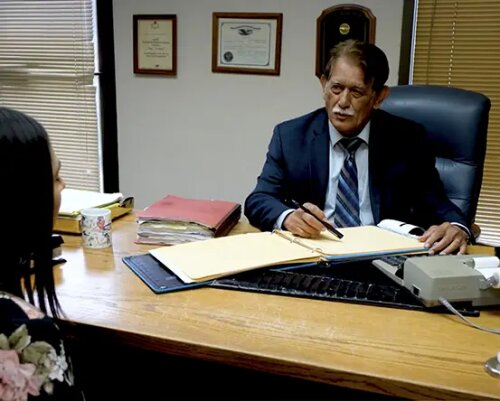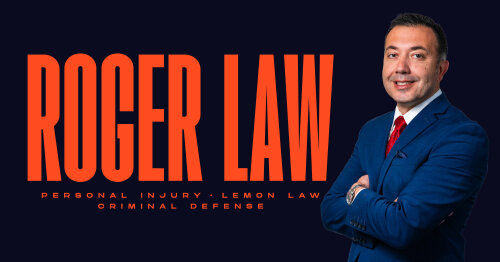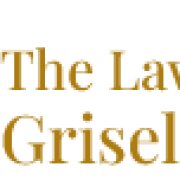Best Toxic Mold Lawyers in Fresno
Share your needs with us, get contacted by law firms.
Free. Takes 2 min.
List of the best lawyers in Fresno, United States
About Toxic Mold Law in Fresno, United States
Toxic mold is a serious concern in Fresno and throughout California, causing health problems and property damage when left unaddressed. Toxic mold, especially varieties like black mold (Stachybotrys chartarum), can develop in homes, rental units, workplaces, and public buildings when moisture is present. In Fresno, the warm climate combined with occasional rainfall can create conditions conducive to mold growth, especially where there are plumbing leaks, roof leaks, or poor ventilation. Toxic mold law deals with the responsibilities of landlords, tenants, property owners, employers, and others to prevent, disclose, and remediate mold, as well as the rights of individuals affected by exposure.
Why You May Need a Lawyer
People in Fresno may require legal help with toxic mold issues in several situations:
- If your landlord fails to address persistent mold growth in your rental unit
- If you purchased a property and the seller failed to disclose known mold problems
- If you or your family members suffer health issues you believe are linked to mold exposure
- If your home, business, or personal belongings are damaged due to unchecked mold growth
- If you are involved in a dispute over responsibility for mold remediation costs
- If you need help understanding your rights or obligations under California law with respect to mold prevention, disclosure, or cleanup
- If your insurance company denies a mold-related claim
- If you are facing retaliation or eviction for reporting mold problems as a tenant
A lawyer can help by interpreting complex regulations, protecting your rights, gathering evidence, negotiating settlements, or representing you in court if necessary.
Local Laws Overview
California law, which applies in Fresno, sets forth several rules regarding toxic mold:
- Landlord Responsibilities: Under the California Health and Safety Code, landlords must maintain rental properties in a habitable condition, which includes addressing water leaks and mold problems.
- Disclosure Requirements: Sellers and landlords must disclose known mold issues to buyers or renters before completing a transaction.
- Habitability Standards: If mold makes a property unsafe or uninhabitable, tenants may have rights to demand repairs, withhold rent, or even break the lease in severe cases.
- Remediation Guidelines: The state provides guidelines (though not binding laws) for mold remediation, aimed at ensuring safe and effective removal of mold.
- Retaliation Protection: State law prohibits landlords from retaliating against tenants who report mold problems or file complaints regarding unhealthy conditions.
Additionally, Fresno municipal codes may impose further requirements on property owners and managers. Local health departments can also intervene if mold presents an immediate threat to health and safety.
Frequently Asked Questions
What is considered toxic mold?
Toxic mold generally refers to certain species of mold that produce mycotoxins, which can be harmful to humans. Black mold (Stachybotrys chartarum) is the most well-known, but other molds can also produce dangerous toxins.
How can I tell if I have a toxic mold problem in my home?
Common signs include a musty odor, visible black or green mold growth, and persistent water leaks or dampness. Health symptoms such as coughing, sneezing, headaches, or skin rashes can also indicate mold exposure.
Who is responsible for cleaning up mold in a rental property?
In most cases, the landlord is responsible for addressing mold caused by structural issues or leaks. However, tenants should promptly report problems and avoid causing moisture buildup through neglect.
Do landlords have to disclose mold problems in Fresno?
Yes, under California law, landlords and property sellers must disclose any known mold issues to prospective tenants or buyers.
Can I break my lease because of mold?
If mold makes your rental uninhabitable and the landlord fails to address the problem, you may have legal grounds to break your lease. Consult a lawyer before taking this step.
What should I do if my landlord refuses to fix a mold problem?
Document the issue with photos and written requests. You may be able to withhold rent, repair and deduct the cost, or pursue legal action, depending on the circumstances.
Can I sue for health problems caused by toxic mold?
Yes, you may be able to file a lawsuit against responsible parties if you can prove that mold exposure caused you harm and that the party knew or should have known about the risk.
Does homeowners or renters insurance cover mold damage?
Many policies exclude mold damage, but some may cover it if caused by a covered peril (like a burst pipe). Check your policy details or speak to a lawyer if your claim is denied.
Can employers be held liable for mold exposure at work?
Yes, employers have a duty to provide a safe workplace. If mold exposure causes illness, employees may file workers' compensation claims or workplace safety complaints.
How long do I have to take legal action for mold-related problems?
There are statutes of limitations for personal injury and property damage claims in California, typically one to three years, but specifics can vary. It is best to consult a lawyer promptly.
Additional Resources
- Fresno County Department of Public Health - Provides information and assistance on indoor air quality and mold complaints
- California Department of Consumer Affairs - Offers guides for renters and homeowners on mold in dwellings
- California Department of Public Health - Maintains fact sheets and remediation tips for mold issues
- Legal Aid Organizations in Fresno - Such as Central California Legal Services, which provide free or low-cost legal assistance
- California State Bar Association - Helps connect individuals to attorneys experienced in housing and environmental law
Next Steps
If you are dealing with a toxic mold issue in Fresno, consider taking the following steps:
- Document all evidence of mold, including photos and written descriptions of affected areas and related health symptoms
- Report the issue in writing to your landlord, property manager, employer, or relevant party
- Consult local health or building departments for inspections or guidance
- Review your lease, purchase contract, or insurance policy to understand your rights and obligations
- Contact a qualified attorney who specializes in housing or environmental law in Fresno to evaluate your case and guide you through the legal process
- Explore mediation or negotiation before resorting to court action, if appropriate
Acting quickly to address toxic mold can protect your health and legal rights. A legal professional can help you navigate the complexities of toxic mold law and work toward a safe resolution.
Lawzana helps you find the best lawyers and law firms in Fresno through a curated and pre-screened list of qualified legal professionals. Our platform offers rankings and detailed profiles of attorneys and law firms, allowing you to compare based on practice areas, including Toxic Mold, experience, and client feedback.
Each profile includes a description of the firm's areas of practice, client reviews, team members and partners, year of establishment, spoken languages, office locations, contact information, social media presence, and any published articles or resources. Most firms on our platform speak English and are experienced in both local and international legal matters.
Get a quote from top-rated law firms in Fresno, United States — quickly, securely, and without unnecessary hassle.
Disclaimer:
The information provided on this page is for general informational purposes only and does not constitute legal advice. While we strive to ensure the accuracy and relevance of the content, legal information may change over time, and interpretations of the law can vary. You should always consult with a qualified legal professional for advice specific to your situation.
We disclaim all liability for actions taken or not taken based on the content of this page. If you believe any information is incorrect or outdated, please contact us, and we will review and update it where appropriate.














